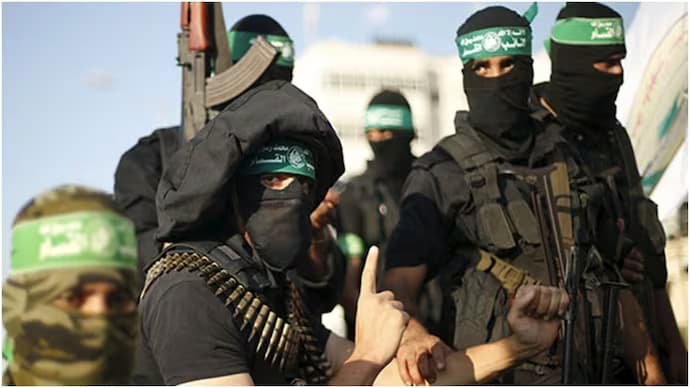We're loading the full news article for you. This includes the article content, images, author information, and related articles.
The transfer of remains, part of a U.S.-brokered deal, puts a renewed focus on the delicate truce as Israel works to identify the deceased. For Kenya, the ongoing conflict underscores the complexities of international peacemaking and its diplomatic stance supporting a two-state solution.

Hamas handed over three coffins reportedly containing the remains of deceased hostages to Israel on Sunday, November 2, 2025, a move confirmed by the Israeli military. The coffins were transferred via the International Committee of the Red Cross (ICRC) from the Gaza Strip and have been sent to Israel's National Center of Forensic Medicine for formal identification.
The handover is a component of the first phase of a fragile, U.S.-brokered ceasefire agreement that commenced on October 10, 2025. Under this agreement, Hamas consented to return the 20 living hostages and the remains of 28 deceased hostages it was holding. Prior to this latest transfer, Hamas had returned the remains of 17 deceased hostages. If the remains are confirmed to be those of hostages, it would mean the bodies of eight deceased hostages are still in Gaza.
In a statement, the armed wing of Hamas, the Al-Qassam Brigades, announced on Sunday that the remains had been discovered earlier that day in a tunnel located in the southern Gaza Strip. The Israeli Prime Minister's Office confirmed that the families of all hostages had been notified of the development. A statement from the office expressed solidarity with the families during this difficult time and reiterated the government's commitment to returning all hostages.
The process of returning the deceased has been a point of contention, straining the month-old truce. Israeli officials have accused Hamas of deliberately slowing down the return of the remains. In contrast, Hamas has maintained that the search and recovery efforts are complicated by the extensive destruction across Gaza and a lack of necessary heavy equipment to clear rubble. The Al-Qassam Brigades has publicly called on international mediators and the ICRC to provide engineering equipment to expedite the recovery of bodies.
Adding to the complexity, there have been instances where remains handed over were not those of the Israeli hostages. On Saturday, November 1, 2025, Israeli authorities announced that partial remains transferred by Hamas the previous day did not belong to any of the missing hostages following forensic examination. Hamas stated it had offered samples for testing first, but Israel insisted on receiving the full bodies for examination.
The Hostages and Missing Families Forum, an organization representing the families of those held captive, has been actively pressuring the Israeli government to secure the return of all remaining deceased hostages. The group has called for the government to act with determination to ensure Hamas fulfills its commitments under the ceasefire agreement. The emotional toll on the families has been immense, with many living in a state of "unbearable uncertainty and doubt."
The United States has been a key mediator in the ceasefire deal. The agreement's first phase involves the release of hostages and Palestinian prisoners, a partial withdrawal of Israeli troops from Gaza, and the facilitation of increased humanitarian aid into the besieged territory. Both sides have accused each other of violations, testing the durability of the truce.
While the conflict is geographically distant, its implications are global. Kenya has consistently articulated a diplomatic position on the long-standing Israeli-Palestinian conflict. On October 9, 2025, Prime Cabinet Secretary and Cabinet Secretary for Foreign and Diaspora Affairs, Musalia Mudavadi, welcomed the ceasefire agreement as a "vital step in easing human suffering in Gaza." He reiterated Kenya's support for a lasting peace anchored on a two-state solution, a position President William Ruto has also championed.
Historically, Kenya has maintained friendly relations with both Israel and Palestine, hosting diplomatic missions from both in Nairobi. The Kenyan government has condemned terrorism, including the October 7, 2023 attacks by Hamas, while also expressing concern over the humanitarian impact of the conflict on Palestinian civilians and calling for the protection of non-combatants in line with international humanitarian law. The ongoing efforts to implement the ceasefire, including the sensitive process of returning hostages, are watched closely by the international community, including nations like Kenya that advocate for peaceful resolutions to conflicts through established diplomatic channels.
Keep the conversation in one place—threads here stay linked to the story and in the forums.
Sign in to start a discussion
Start a conversation about this story and keep it linked here.
Other hot threads
E-sports and Gaming Community in Kenya
Active 9 months ago
The Role of Technology in Modern Agriculture (AgriTech)
Active 9 months ago
Popular Recreational Activities Across Counties
Active 9 months ago
Investing in Youth Sports Development Programs
Active 9 months ago